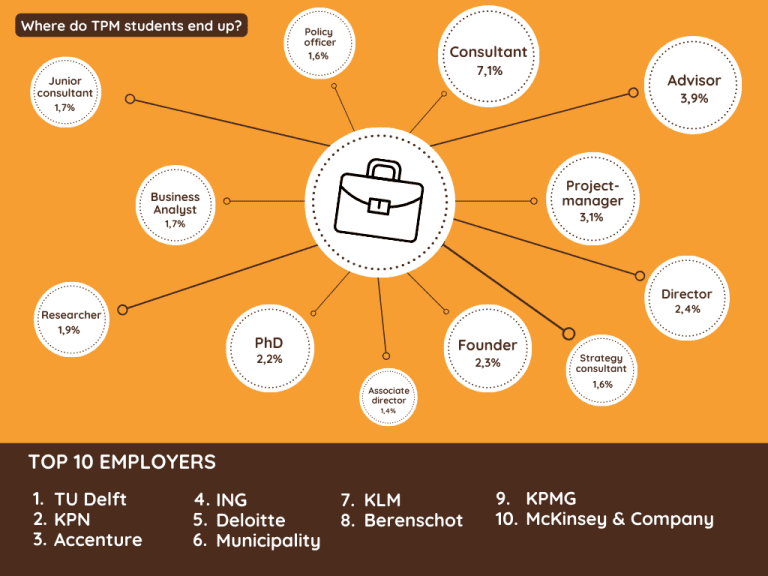The Faculty of Technology, Policy and Management celebrates its 30th anniversary. It began with a need for engineers who could look beyond their field. Did they get there?
People at TPM often have multiple backgrounds. (Photo: Danielle ten Brinkhuis)
In search of the roots of the Faculty of Technology, Policy and Management (TPM), we return to 1986. The economy is ailing, unemployment is high, and the Dutch Government continues to make cuts. In January, the space shuttle Challenger explodes and three months later the Chernobyl nuclear disaster occurs. The world is introduced to a ‘computer virus’, which spreads through floppy disks. Following in the footsteps of his British counterpart, Margaret Thatcher, the Dutch Prime Minister Ruud Lubbers pushes for liberalisation while minimising state spending.
When former Education Minister Wim Deetman announced more cuts in higher education in January 1987, the TU Delft Executive Board President and former minister Henk Zeevalking knows what to do: full steam ahead. “I see a Universitas Neerlandica unparalleled in our country, and perhaps in the whole of Western Europe, in the three South Holland establishments for scientific education: Leiden, Delft and Rotterdam,” he pontificates in the Algemeen Dagblad newspaper. “We should not limit ourselves to educating narrow-minded engineers at TU Delft but broaden our field of vision to include social sciences, humanities and economics as well as technical sciences.”
Two years earlier, a graduate course in public administration had been started at TU Delft. That was after Minister Wim Deetman had stated that he wanted to increase the education capacity in public administration. It was the only growth sector for Dutch universities. For years university budgets in other courses had experienced nothing other than cuts and shrinkage, and doom and gloom. In Leiden and Rotterdam, new public administration courses were created. TU Delft initially started with a graduate course. The students who chose this course at the then Faculties of Civil Engineering, Architecture and Geodesy, received a special mention with their engineering diploma.
Later, TU Delft expanded the graduate course to a full degree in Technical Public Administration. Information Scientist Professor Henk Sol was asked to set up the course in 1989. Apparently Sol did a good job because in January 1992 the Board appointed him as founding dean of the Faculty of Technical Public Administration. In September that year, the first 100 bachelor’s students arrived (limited by a numerus fixus). A merger with the Faculty of Philosophy, Technology and Society in 1997 created the Faculty of Technology, Policy and Management (TPM) as we know it today.
Faculty celebrates 30 years
The Faculty takes that year, 1992, as its birth year. In an email to TPM staff last September, the current Dean, Professor Aukje Hassoldt, wrote: ‘In 1990, TU Delft’s Executive Board established the Zeevalking Committee. Led by chairman Henk Zeevalking, the Committee recognised that there was a great societal need for engineers who could cross the boundaries of different disciplines and thus tackle important socio-technological issues. Based on the advice of that committee, the bachelor’s degree in Technical Public Administration was launched in September 1992. This is where our census starts. Also, our esteemed study association Curius was founded almost immediately after that. Curius is also celebrating its 30th anniversary this academic year.’
Consultant, advisor, manager


Data from alumni relations TU Delft. (Image: Marjolein van der Veldt)
What has become of the intention to train engineers who could transcend disciplinary boundaries? Delta asked the Alumni Relations Department where TPM graduates end up.
The database lists 412 different occupations, from consultant to sailing and windsurfing instructor. The most common jobs for TPM alumni are consultant, advisor and project manager. But the range is so wide that the percentage of alumni holding these most frequent jobs also remains low.
Another approach is to look at which employers TPM graduates join after their studies. Here too, a top three emerges that is not very surprising: a ministry (4%), an international university (3%), and TU Delft itself (2%). In this approach, 91% do not work at one of the largest employers, but at one of 667 other companies. In short: everywhere.
The third approach comes from magnet.me, a meeting platform for employers and students, which compiled a list (in Dutch) of the most popular courses among employers. The platform deduced this from the number of times students from a particular field of study were approached by recruiters on the platform. Conclusion: Erasmus University alumni are the most sought-after (13 times in the top 50, TU Delft eight times). Of the TU Delft studies, two TPM programmes are the most popular among employers: Engineering and Policy Analysis (fourth place) and Complex Systems Engineering and Management (sixth place).
- Read the interview with Dean Aukje Hassoldt tomorrow: ‘TPM is much more technical than people think’
Do you have a question or comment about this article?
j.w.wassink@tudelft.nl


Comments are closed.